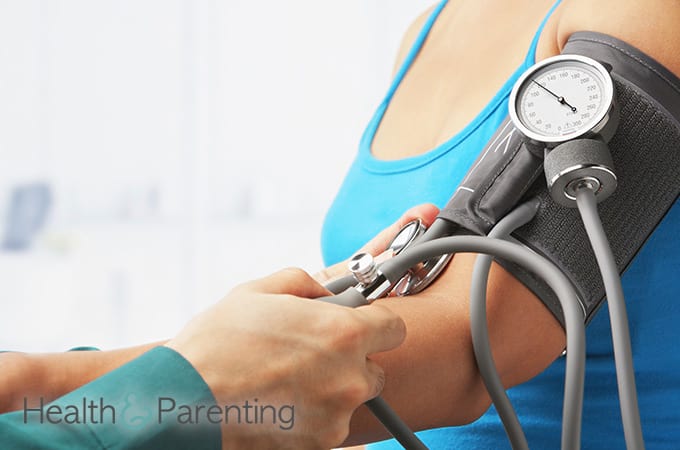At each prenatal appointment, your healthcare provider will take your blood pressure to check that it is in the ‘normal’ range. High blood pressure means that your body is working harder than than it should be to pump blood around your body.
High blood pressure during pregnancy affects less than one in five women. High blood pressure during pregnancy is also known as hypertension and comes in two main forms:
- chronic hypertension (this is not a pregnancy condition)
- gestational hypertension and pre-eclampsia
Hypertension varies from mild to severe, and this is judged by the heart rate itself. A higher heart rate means a more severe condition. The treatment and management of the condition will depend upon the severity.
Chronic hypertension
If you suffer from chronic hypertension, you may already be taking medications to lower your blood pressure. Some women find they are able to temporarily stop taking these medications during pregnancy as their blood pressure naturally lowers. If you are already taking blood pressure medication, you must inform your doctor that you are pregnant or trying for a baby. Some blood pressure medications are not suitable for use during pregnancy, and you may need to change medications.
Gestational hypertension
Gestational hypertension occurs during the second half of the pregnancy. If you do not go on to develop pre-eclampsia, and your blood pressure returns to normal within six weeks of the birth, you were suffering from gestational hypertension. Less than one in five women will develop gestational hypertension during pregnancy.
Pre-eclampsia
High blood pressure is one of the symptoms of a serious condition called pre-eclampsia. At each prenatal visit, your healthcare provider should check both your blood pressure and perform a dip test on your urine sample to identify proteins. If you test positive for both high blood pressure and proteins in your urine, you may be suffering from pre-eclampsia.
How to manage high blood pressure during pregnancy
The following tips may help you to manage your blood pressure during pregnancy:
- regular exercise – you should take 30 minutes of exercise every day. Swimming, yoga and walking are gentle exercises that can have a positive effect on blood pressure.
- eat healthily – eat a healthy, balanced diet rich in fresh fruit and vegetables. Avoid junk and processed foods where possible. Avoid consuming empty calories such as fizzy drinks and sweets.
- cut the salt – reduce your salt intake. Avoid cooking with salt, and try to limit your intake or processed foods. You might be surprised to find out how much salt hides in the food you eat every day.
It is important to attend every prenatal appointment with your healthcare provider. The regular blood pressure checks allow your healthcare provider to keep an eye on your condition.
Written by Fiona, proud owner of a toddler, @fiona_peacock
This information is not intended to replace the advice of a trained medical doctor. Health & Parenting Ltd disclaims any liability for the decisions you make based on this information, which is provided to you on a general information basis only and not as a substitute for personalized medical advice. All contents copyright © Health & Parenting Ltd 2018. All rights reserved.










